Most cancers develop in the epithelial tissue, which includes the skin and internal organ linings. Hemidesmosomes (HDs) are adhesive structures that anchor epithelial cells to the underlying base layer and maintain tissue integrity. While HD disassembly occurs normally during wound healing, tumor cells can exploit this process to detach and spread to other parts of the body. Dr. Bagde is studying how HD components interlock like Lego blocks to form stable HDs in healthy tissues and how they disassemble in cancerous tissues. To investigate this phenomenon, Dr. Bagde plans to develop organoids—self-organizing mini-organs grown in a petri dish to study disease progression. By creating simple base layers that simulate the supportive properties of the native organ base layer, he plans to promote the growth of both normal and cancerous organoids. This work has the potential to support the development of personalized cancer therapies based on patient-derived tumor samples. Dr. Bagde received his PhD from Cornell University, Ithaca and his MS and BS from the Indian Institute of Science Education and Research, Pune.
Colorectal and Gastric Cancers
Current Projects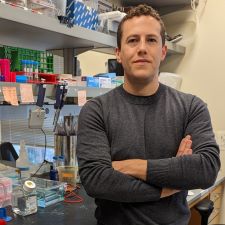
Abnormal interactions between our immune system and our gut microbes can lead to inflammation that drives colon and gastric cancer growth. Dr. Brian [HHMI Fellow] is investigating how the immune system recognizes and responds to these microbes, and how these interactions contribute to abnormal inflammation that can fuel cancer growth. Microbiota-immune interactions have been generally studied in the context of "clean" laboratory mice, but these models do not fully capture human immunology and the complex interplay between host cells and foreign microbes. To overcome this, Dr. Brian plans to study these interactions in "dirty" mice, colonized by a diverse community of microbes as well as pathogens. He will then use laboratory mice with more defined microbial communities to test how recognition of specific microbes by the immune system is regulated and how disruptions to this regulation contributes to inflammation. Dr. Brian received his PhD from the University of Minnesota, Twin Cities and his BS from the University of California, Santa Barbara.
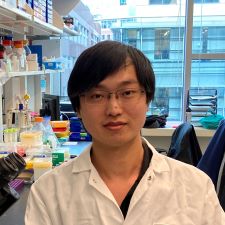
Dietary interventions such as caloric restriction (CR) and ketogenic diet (KD) are reported to limit tumor growth partially by modulating stem cell function. The intestine functions as the main organ of nutrient absorption and, due to rapid tissue renewal via intestinal stem cells (ISCs), is sensitive to shifts in the body’s metabolic state before and after eating. Both CR and KD conditions dramatically enhance the activity of an enzyme in ISCs known as HMGCS2. This enzyme controls ketogenesis, the conversion of fatty acids into ketone bodies as a means of producing energy when glucose is unavailable. Dr. Chi aims to dissect the role of ketone body metabolites in modulating intestinal stem cell function and tumor growth. With a better understanding of how intestinal stem cells adapt to diverse diets, he hopes to identify new strategies or dietary interventions that prevent and reduce the growth of cancers in the intestinal tract. Dr. Chi received his PhD from the University of California, Los Angeles and his BS from Zhejiang University.
In many cancer types, microbiota have emerged as an influential component of the tumor environment. Dr. Dohlman [Meghan E. Raveis Fellow] studies Fusobacterium nucleatum, a bacterial species that colonizes around half of colorectal tumors. The reasons for F. nucleatum’s preferential colonization of these tissues are poorly understood, and investigating this phenomenon could lead to improvements in cancer diagnosis and treatment. To this end, Dr. Dohlman is using computational methods to study strains of cancer-associated F. nucleatum, searching for genomic features that promote colonization of colorectal cancers. In parallel, he is analyzing the genomes of colorectal tumors to identify genetic changes that in turn promote F. nucleatum colonization. Dr. Dohlman received his PhD from Duke University, Durham and his BA from Wesleyan University, Middletown.
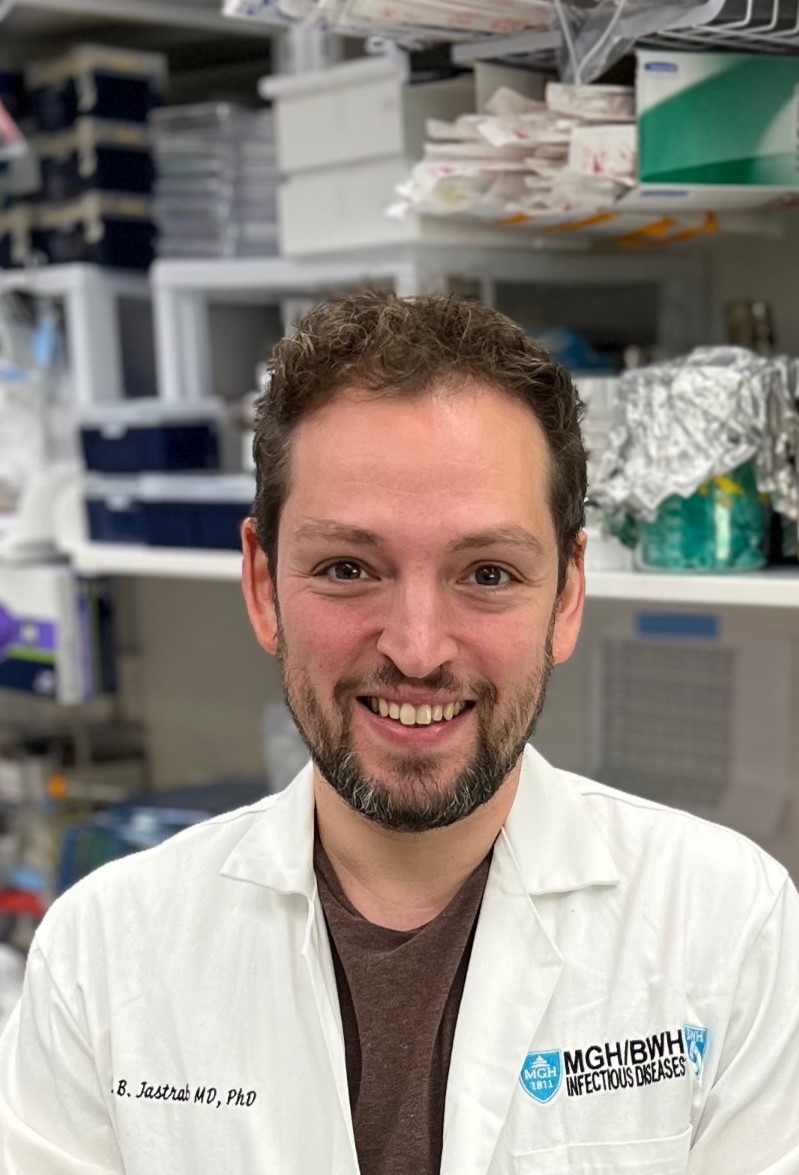
Immune cells called macrophages can swallow bacteria and contain them in membrane-bound compartments called phagosomes. From inside the phagosome, some bacteria stimulate immune pathways in the cytosol, but it is unclear how immune signals are transmitted across the membrane from the phagosome into the cytosol. To investigate, Dr. Jastrab [Robert Black Fellow] has developed a macrophage infection model using mutants of the bacterium Staphylococcus aureus that stimulate an immune complex in the cytosol called the inflammasome. He aims to identify the host and microbial pathways that facilitate activation of the inflammasome during infection. Because the activation of cytosolic immune receptors by phagosomal bacteria may be important in protection against colorectal cancer, Dr. Jastrab’s work aims to elucidate pathways that may be manipulated to prevent tumorigenesis and enhance anti-tumor immunity. Dr. Jastrab received his MD, PhD from New York University School of Medicine, New York and his BS from Tufts University, Medford.
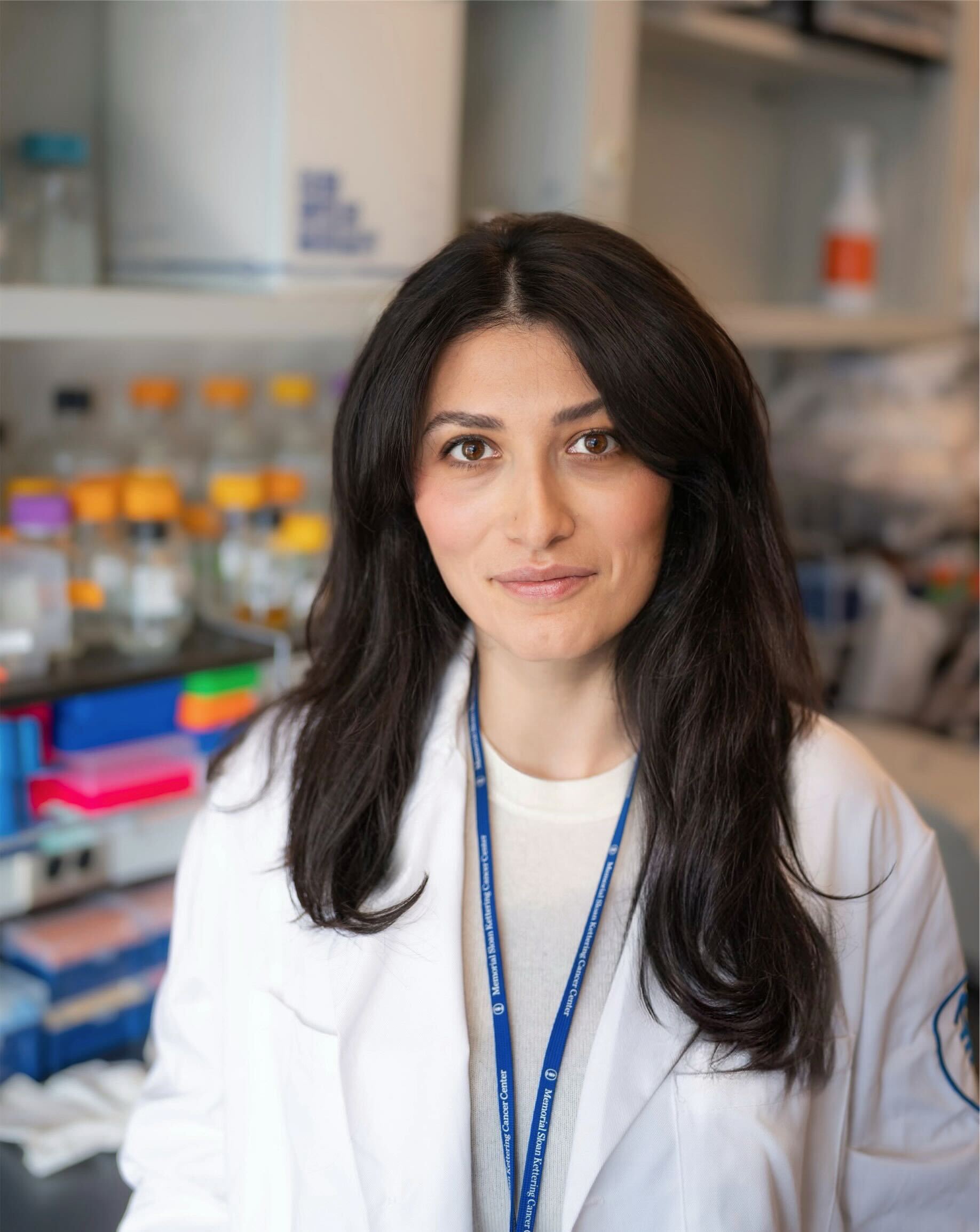
Mitochondria harbor independent genetic material known as mitochondrial DNA (mtDNA). This compact, circular molecule encodes proteins essential for the assembly of the mitochondrial electron transport chain to generate energy in form of ATP. Like nuclear DNA, mtDNA is susceptible to damage and mutations. One of the most common disease-causing aberrations of mtDNA is termed “common deletion.” This aberration disrupts mitochondrial function, resulting in neuromuscular diseases and potentially certain cancers, including colorectal cancer. Due to a lack of tools to modify the mitochondrial genome, researchers currently do not understand the mechanisms behind common deletion. Dr. Kavlashvili [Timmerman Traverse Fellow] aims to investigate by using cutting-edge molecular biology tools to edit and visualize mtDNA genomes. She will then be poised to unravel impacts of this deletion on various tissues, in order to ultimately mitigate its pathological impact. Dr. Kavlashvili received her PhD from Vanderbilt University, Nashville and her BS from University of Iowa, Iowa City.
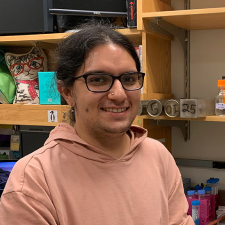
In addition to acute illness, viruses can cause cancers. While our understanding of cellular immunity against viruses that have DNA-based genomes is robust, we know less about how cells protect themselves against RNA-based viruses such as hepatitis C, a leading cause of liver cancer. Because many cellular defenses against viruses are known to be shared between mammals and bacteria, Dr. Mendoza [HHMI Fellow] is looking for new cellular defenses against RNA viruses in bacteria and will investigate how these defenses work. The resulting discovery of anti-viral defenses will broaden our understanding of how cells protect themselves against RNA viruses, which will improve our capacity to support patients' immune systems when infected with cancer-causing RNA viruses. Dr. Mendoza received their PhD from the University of California, San Francisco, and their BS from the University of Miami.
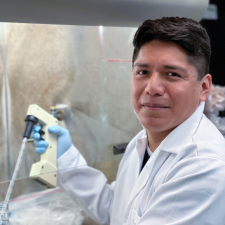
Human cells compact their vast genomes into the small confines of the nucleus by wrapping their DNA into a highly complex structure called chromatin. Packaging DNA into chromatin, however, affects all nucleic acid-transacting machines (e.g., transcription factors) that need to access the genomic information stored in the DNA. NuRD is a large multi-subunit protein complex that plays a major role in making chromatin either accessible or inaccessible. Dysregulation of NuRD and aberrant targeting of the complex can result in the emergence of several types of cancers, including breast, liver, lung, blood, and prostate cancers. Dr. Osorio Valeriano’s [Philip O'Bryan Montgomery, Jr., MD, Fellow] work will reveal mechanistic aspects of NuRD-mediated chromatin regulation and pave the way for the development of novel therapeutic approaches that target cancers more effectively. Dr. Osorio Valeriano received his PhD from Philipps University and his MSc and BSc from the National Autonomous University of Mexico.

Emerging evidence implicates the pathogenic bacterium C. difficile as an initiator of colorectal cancer. C. difficile exposure can lead to chronic recurrent disease that is difficult to clear with antibiotics. The generation of spores is a well-studied mechanism used by C. difficile to persist; however, other mechanisms of recurrent infection remain poorly understood. Dr. Price [Merck Fellow] hypothesizes that biofilms may function as reservoirs of C. difficile and aims to elucidate their role in disease relapse. She will employ innovative imaging strategies to visualize the composition and development of C. difficile biofilms in the gastrointestinal tract, with the goal of generating insight that will improve treatments for C. difficile infections and identify strategies to prevent colorectal cancer. Dr. Price received her PhD from University of Louisville, Louisville and her BS from University of Tennessee, Knoxville.

Dr. Ramanan studies the interplay between commensal microbes and immune cells in the intestine, and how these interactions influence the progression of inflammation and colorectal cancer. Immune fitness of an individual is thought to be the result of ongoing interactions between genetics and microbial exposure. A fundamental and often overlooked aspect of immunity, however, is the effect of maternal and environmental factors in early life. She uncovered a novel mode of non-genetic multigenerational transfer of immune traits (entero-mammary axis). She will utilize this tool to understand how maternal factors can modulate immune responses to infections, inflammation, and colorectal carcinoma.







